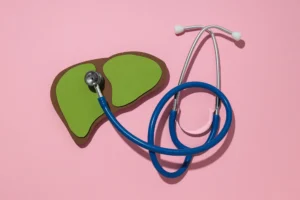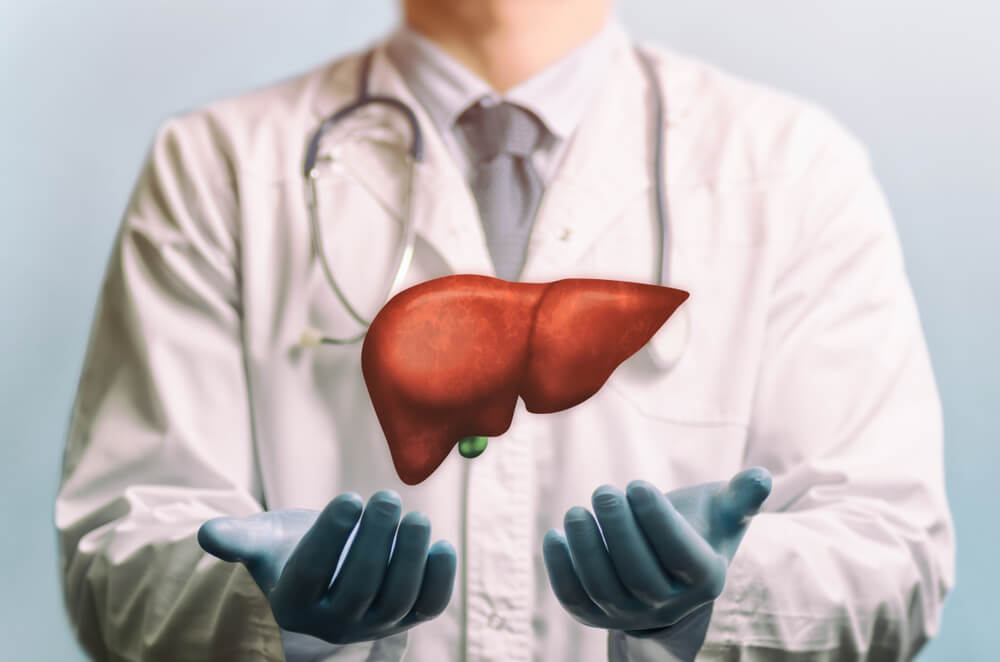Liver Transplant Success Rate in Turkey
In some Turkish hospitals, the success rate of liver transplant surgeries exceeds 92.5%. This rate primarily depends on the patient’s health condition and the expertise of the professor performing the surgery. Liver transplantation can save the patient’s life when their liver stops functioning. It is typically the last resort treatment for chronic liver diseases and acute liver failure. The procedure involves the complete surgical removal of the damaged liver and replacing it with a healthy liver from a deceased donor or just a portion of a living donor’s liver.

Contents
- Accurate Statistics of Liver Transplant Success Rate in Turkey
According to studies on liver transplant success rates in Turkey, individuals undergoing the procedure have an 87% chance of survival after one year. The five-year survival rate is 74% for patients with other health issues who have received a liver from a deceased donor. Sometimes, liver failure may occur, or the patient may relapse into the same disease they suffered from before. Therefore, individuals receiving part of a liver from a living donor tend to have better short-term survival compared to those receiving a liver from a deceased donor.
It is difficult to compare long-term results of liver transplantation because patients receiving a portion of a liver from a living donor typically wait less time for the surgery compared to those receiving a liver from a deceased donor. Hence, it is essential for doctors to monitor the patient closely during the recovery period to detect any potential problems. Patients will also likely need regular blood tests and will have to take immunosuppressive drugs for the rest of their lives to help their bodies accept the transplanted organ.
Post-Transplant Tests
After a successful liver transplant and discharge from the hospital, the patient needs to undergo regular monitoring and follow-up with the surgeon. Even if the patient returns to their home country, several tests must be conducted regularly and sent to the hospital for assessment. Based on the results, the doctor will make adjustments to the patient’s medication doses. The following are the tests required:
- Post-Transplant Blood Tests Schedule:
- First two weeks after transplant: Blood tests twice a week.
- Three to four weeks after transplant: Blood tests once a week.
- One to three months after transplant: Blood tests every 15 days.
- Three to twelve months after transplant: Blood tests every month.
- Twelve to twenty-four months after transplant: Blood tests every two months.
- Doppler USG: Conducted in the first month, third month, and the twelfth month after surgery.
Necessary Tests After a Liver Transplant:
- BUN, Creatinine, Na, K, Ca, Mg, Albumin, Uric acid, AST, ALT, Total bilirubin, ALP, GGT, Total Cholesterol, Triglycerides, Urine analysis, Tacrolimus, CBC, CRP.
If you’re interested in traveling for a liver transplant in Turkey, contact us, and we’ll guide you to the best hospitals specializing in liver transplants with the highest success rates and the most affordable treatment costs. Simply get in touch with us.
Watch the Liver Transplantation Video in Turkey
In this video, you’ll find detailed information about liver transplantation in Turkey, along with additional health-related information regarding this procedure.
You can also learn about the detailed story of an Algerian patient who underwent a liver transplant in Turkey, along with their treatment journey from Algeria to Turkey by clicking the link below.
Patient Story
Important Tips for a Healthy Liver:
After liver transplantation, the responsible doctor may recommend lifestyle changes, such as regular exercise and following a healthy, balanced diet. These habits can reduce the risk of organ rejection. The doctor may also advise the patient to limit risk factors contributing to liver diseases, including alcohol addiction, smoking, obesity, and high fat levels.
Please note: For an appropriate recovery and to maintain liver health, following these lifestyle adjustments is essential. 🌱💪
في بعض المستشفيات التركية نسبة نجاح عملية زراعة الكبد في تركيا تفوق 92.5% وهذه النسبة راجعة بالاساس الى حالة المريض الصحية و خبرة البروفيسور الذي سيجري العملية للمريض فبإمكان عملية زراعة الكبد إنقاذ حياة المريض عندما يتوقف كبده عن العمل إذ تعد عملية زراعة الكبد الإجراء الأخير لعلاج أمراض الكبد المزمنة وأمراض الكبد الحادة. تتم هذه العملية عن طريق الاستئصال الجراحي للكبد التالف بالكامل.من ثم يتم استبداله بكبد سليم كامل من متبرع متوفى أو بجزء فقط من كبد شخص حي.
قائمة المحتويات
نسبة نجاح عملية زراعة الكبد في تركيا باحصاء دقيق
وفقا لدراسات أجريت عن نسبة نجاح عملية زراعة الكبد في تركيا ، فإن للأشخاص الخاضعين لعملية زرع كبد فرصة بنسبة 87٪ للعيش بعد عام واحد. إذ أن معدل البقاء على قيد الحياة لمدة خمس سنوات هو 74 بالمائة للمرضى اللذين يعانون من مشاكل صحية أخرى بالاضافة اجروا عملية زرع الكبد من متبرع متوفي أما في بعض الأحيان فيمكن أن يحدث فشل للكبد المزروع ، أو يصاب المريض بنفس المرض الذي عانى منه من قبل. لذلك في الغالب يكون لدى الأشخاص المتلقين لجزء كبد من متبرع حي معدل عيش أفضل على المدى القصير من أولئك الذين يتلقون كبد من متبرع متوفى.
من الصعب مقارنة النتائج طويلة المدى بالنسبة لعملية زراعة الكبد لأن المرضى الذين يتلقون جزء من كبد متبرع حي عادة ما ينتظرون وقتا أقصر لإجراء عملية زراعة الكبد وليسوا كالمرضى الذين يتلقون كبد من متبرع متوفى. لذا من المهم أن يراقب الطبيب المريض خلال فترة التعافي لفترة طويلة بعد زراعة الكبد لاكتشاف أي مشاكل. كما يحتاج المريض على الأرجح إلى إجراء اختبارات دم بشكل منتظم. كما سيحتاج على الأرجح أيضا إلى تناول الأدوية المثبطة للمناعة ، وهي أدوية تستخدم لمساعدة الجسم على تقبل العضو المزروع الجديد، لبقية حياته.
تحاليل ما بعد عملية زراعة الكبد
بعد اجراء عملية زراعة كبد ناجحة والخروج من المستشفى يحتاج المريض الى الخضوع للمراقبة و المتابعة مع البروفيسور حتى ولو عاد الى بلده فهناك عدة فحوصات يجب ان يجريها المريض بصفة دورية وارسالها الى المستشفى من اجل معاينة النتائج فوفقا لنتائج الفحصوات اللاحقة يجري البروفيسور للمريض تعديلات في جرعات الادوية التي يتناولها ما بعد عملية زراعة الكبد. نذكر من هذه التحاليل:
الفترة الزمنية الخاصة بتحاليل و فحوصات الدم بعد عملية الزرع
- في أول اسبوعين ما بعد عملية الزرع: اجراء التحاليل مرتين في الاسبوع
- في ثلاث الى أربع اسابيع ما بعد عملية الزرع: اجراء التحاليل مرة في الاسبوع
- في شهر الى ثلاث اشهر بعد عملية الزرع: اجراء التحاليل مرة كل 15 يوم
- في 3 أشهر الى 12 شهر بعد عملية الزرع: اجراء التحاليل كل شهر
- في 12 الى 24 شهر بعد عملية الزرع: اجراء التحاليل مرة كل شهرين
- اجراء Doppler USG في الشهر الاول ثم الشهر الثالث ثم في شهر 12 من تاريخ اجراء العملية
ما هي التحاليل اللازمة بعد عملية زراعة الكبد ؟
BUN, Creatinine, Na, K, Ca, Mg, Albumin, Uric acid, AST, ALT, Total bilirubin, ALP, GGT, total Cholesterol, triglesirid, urine analysis, tacrolimus, CBC, CRP
في حال كنتم مهتمين بالسفر من أجل اجراء عملية زراعة الكبد في تركيا تواصلوا معنا لنرشدكم و نوجهكم الى أفضل المستشفيات المختصة في عملية زراعة الكبد بأعلى نسبة نجاح و بأقل كلفة علاج ممكنة كل ما عليكم فقط هو التواصل معنا
تشاهدون في هذا الفيديو تفاصيل عملية زراعة الكبد في تركيا
تشاهدون في الفيديو جميع التفاصيل المتعلقة بعملية زراعة الكبد في تركيا بالاضافة الى معلومات صحية اخرى عن هذه العملية.
يمكنكم التعرف على قصة مريض جزائري خضع لعملية زراعة الكبد في تركيا بالتفصيل و رحلة علاجه معنا من الجزائر الى تركيا من هنا من خلال هذا الرابط في الأسفل
اهم النصائح من اجل كبد صحي وسليم:
قد يوصي الطبيب المسؤول عن حالة المريض بعد إجراء عملية زراعة الكبد بتغيير نمط حياة المريض ، مثل ممارسة التمارين الرياضية بشكل منتظم و إتباع نظام غذائي صحي و سليم. قد تقلل هذه العادات من فرص رفض العضو المزروع لدى المريض. كما قد يطلب من المريض أيضا الحد من عوامل الخطر التي تساهم في الإصابة بأمراض الكبد. يشمل ذلك الإدمان على شرب الكحول ، التدخين ، البدانة ، نسبة الدهون العالية…

